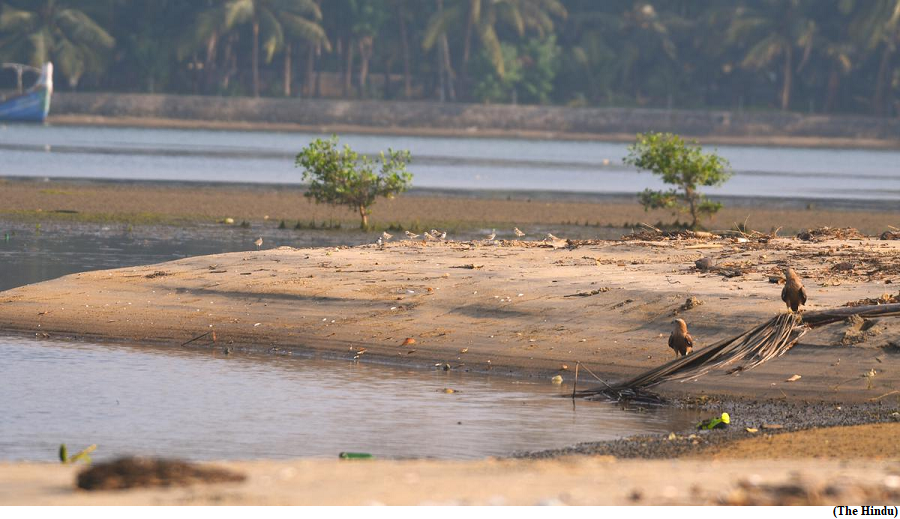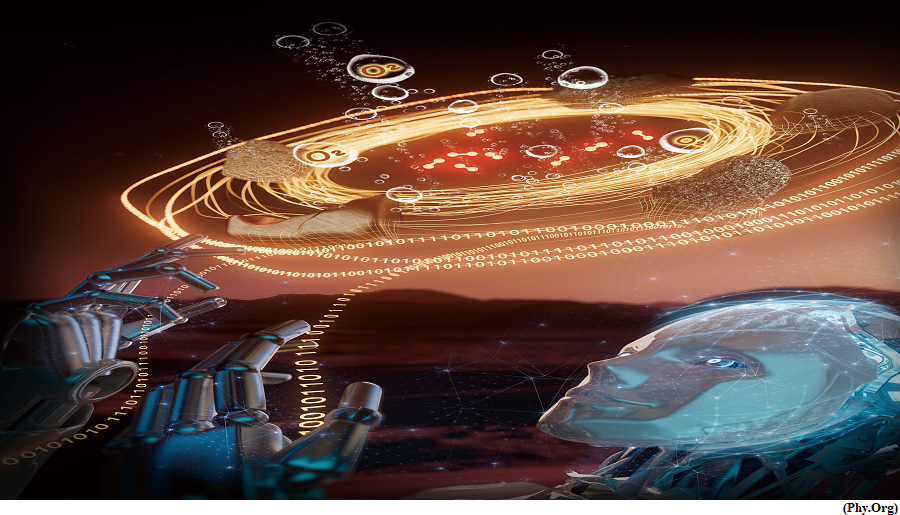Kadalundi shrinking mudflat ecosystem keeps birds away (GS Paper 3, Environment)

Why in news?
- Kadalundi, a village on the southwest coast in Kozhikode district of Kerala, had about 8 hectares of nutrient-rich inter-tidal mudflats in the early 2000s.
- Today, the expanse of mudflats in the estuary of the Kadalundipuzha river has reduced to about 1 hectare. This too is gradually being covered with sand, depriving prey to thousands of shorebirds that migrate from colder climes in winter to the village.
Why it matters?
- Researchers point out that if the mudflats are not protected and restored, Kadalundi will vanish from the global map as a prominent destination of migrant shorebirds in a few years.
- It is the abundance of prey such as polychaetes and crustaceans in the mudflats that attract a wide variety of migrant shorebirds to Kadalundi from places such as Siberia, Ladakh, Mongolia, and Scotland.
Expansion of mangroves:
- The efforts are on to popularise ecotourism in the Kadalundi-Vallikunnu Community Reserve (KVCR) by widening the expanse of mangroves.
- The 154-hectare KVCR had less than 50 hectares of mangroves until a few years ago, but these trees that thrive in salt water have proliferated so fast that they currently occupy more than 60 hectares.
- The sedimentation of sand on mudflats not only brings down the amount of prey there, but also helps mangroves easily proliferate. The viviparous mangroves of Kadalundi have been displaying an aggressively invasive behaviour.
- The mangrove lobby has been raising carbon sequestration as the key environmental factor for its promotion.
Holistic approach:
- Studies show that wetlands and grasslands have the capacity to sequester more carbon than many types of forests. Haphazard tree planting without proper understanding is never advisable.
- It is crucial to adopt a holistic approach that prioritises the protection of intact ecosystems and focuses on restoring the functionality of degraded ecosystems.
Preference to mudflats:
- The mangroves of Kadalundi never attract shorebirds coming from colder regions. They prefer open mudflats where they are safe from predators.
- The migrant birds with great site fidelity are now finding an alternative on the beaches of neighbouring coasts.
AI powered chemist makes oxygen from Martian meteorites
(GS Paper 3, Science and Technology)
Why in news?
- Oxygen-producing materials made from meteorites found on Mars have been produced using a robotic artificial intelligence (AI)-chemist.
- The research provides a proof-of-concept for generating oxygen and may have implications for future manned missions to Mars.

Why it matters?
- Potential future manned missions to Mars will require oxygen as it is essential to human activity on the planet, being used in rocket propellants and life-support systems.
- One of the ways to make these potential missions more cost-effective in the long term and less complex would be to use resources already present on the planet to create oxygen, rather than transport materials from Earth.
- Recent evidence of water on Mars and analysis of the elemental composition of meteorites found on the planet could provide an opportunity to make catalysts using Martian resources.
AI-chemist:
- Researchers from the University of Science and Technology of China, developed a robotic AI-chemist that is able to create catalysts that can be used to produce oxygen from Martian materials without human intervention.
- Using a machine-learning model derived from both first-principles data and experimental measurements, this method automatically and rapidly identifies the optimal catalyst formula from more than three million possible compositions.
Key Highlights:
- They selected five different categories of meteorites that come from or have been confirmed to exist on Mars, which were analysed by the robotic AI-chemist.
- The robotic AI-chemist was able to convert the meteorites into chemical compounds and make catalysts from these compounds before testing the catalysts’ oxygen production performance.
- This process was repeated by the robot until the best catalyst had been found, which they suggest could have taken 2,000 years of human labour. This catalyst could operate under simulated Martian conditions.
Way Forward:
- This robotic AI-chemist allows for the automated production of catalysts using Martian meteorites, which may lead to a way for humans to make oxygen on Mars in the future.
Tamil writer Perumal Murugan wins 2023 JCB Literary Prize
(Miscellaneous)
Why in news?
- Tamil writer Perumal Murugan’s novel ‘Fire Bird’, translated into English by Janani Kannan, won the 2023 JCB Prize for Literature.
- The book was published by Penguin Random House India.

About JCB Literary Prize:
- The JCB Literary Prize award carries Rs 25 lakh to the author and an additional Rs 10 lakh to the translator.
- JCB Prize was established in 2018.
- It is awarded annually to a distinguished work of fiction by an Indian writer working in English or translated fiction by an Indian writer.
- It has been called "India's most valuable literature prize".
About Perumal Murugan:
- Murugan has written 12 novels, six collections of short stories, six anthologies of poetry, and many non-fiction books.
- Ten of his novels have been translated into English, which include ‘Seasons of the Palm’, ‘Current Show’ and ‘One Part Woman’.




